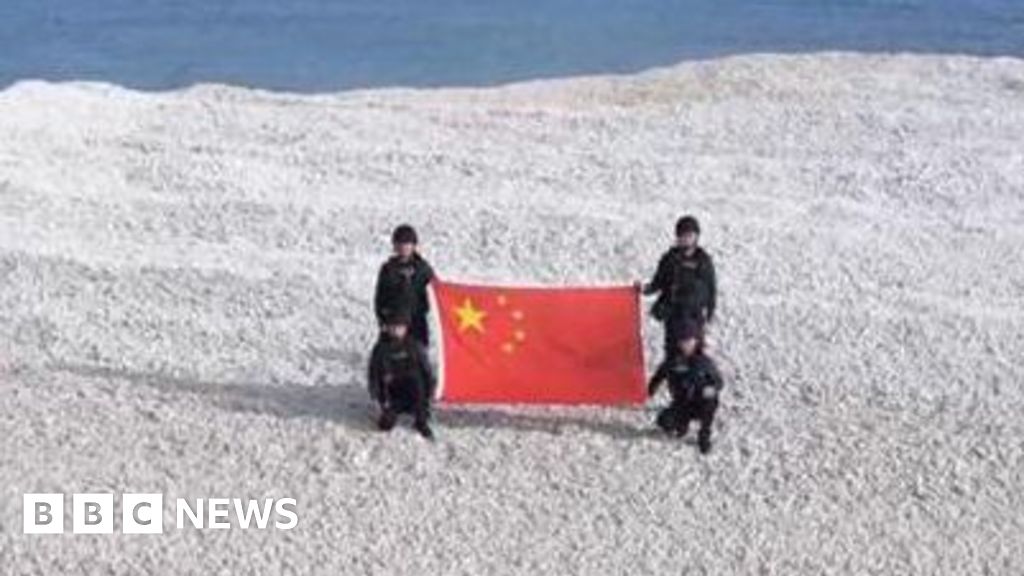Beijing's South China Sea Sandbank Grab: A Tiny Island, A Big Power Play
The South China Sea, a vital waterway teeming with resources and strategic importance, is once again the focal point of geopolitical tension. China's recent activities, particularly its apparent reclamation and fortification of submerged sandbanks, have reignited concerns about its assertive stance in the region. This article delves into the implications of Beijing's latest move, focusing on a seemingly insignificant island, yet one with significant geopolitical consequences.
A Tiny Island, A Giant Impact:
The specific sandbank in question remains largely unnamed in official Chinese communications, a tactic often employed to obscure the true extent of these actions. However, satellite imagery and reports from regional observers strongly suggest that China is engaging in large-scale land reclamation, potentially transforming a submerged feature into a militarily significant outpost. This follows a pattern of similar actions in the Spratly and Paracel Islands, significantly altering the geographical landscape and strategic balance of power in the South China Sea.
More Than Just Sand:
The implications of this sandbank grab extend far beyond the physical expansion of territory. The strategic implications are profound:
- Military Posturing: A fortified island provides a strategic advantage, allowing for increased surveillance capabilities, expanded air and naval patrols, and potentially the deployment of offensive weaponry. This directly challenges the claims of neighboring nations and undermines regional stability.
- Resource Control: The South China Sea is rich in resources, including fisheries and potentially vast reserves of oil and gas. Control of these sandbanks grants access to and control over these resources, furthering China's economic dominance in the region.
- Navigation Rights: The actions challenge the freedom of navigation, a principle vital for international trade and stability. The militarization of these features threatens to restrict access for all vessels, impacting global shipping lanes.
- International Law: China’s actions blatantly disregard international law, particularly the United Nations Convention on the Law of the Sea (UNCLOS), which dictates how maritime disputes should be resolved. This disregard for international norms sets a dangerous precedent.
International Response and Concerns:
The international community has expressed deep concern over China's actions. Neighboring countries with overlapping claims in the South China Sea, including Vietnam, the Philippines, Malaysia, Brunei, and Taiwan, have vehemently protested these moves. The United States, a key player in maintaining regional security, has also voiced its strong disapproval, conducting freedom of navigation operations to challenge China's assertive claims.
Looking Ahead:
The situation in the South China Sea remains highly volatile. China's continued reclamation and fortification of sandbanks represent a significant escalation of tensions and a blatant disregard for international law. The long-term consequences of this power play are yet to be fully realized, but it is clear that this seemingly small island holds immense geopolitical weight. The international community must work together to de-escalate tensions and find a peaceful resolution through diplomatic means, upholding international law and the principle of freedom of navigation. Failure to do so could have devastating consequences for regional stability and global trade.
Further Reading:
- [Link to relevant article from a reputable news source, e.g., The New York Times]
- [Link to relevant article from a think tank, e.g., The Council on Foreign Relations]
Call to Action:
Stay informed about developments in the South China Sea. Follow reputable news sources and engage in informed discussions about the geopolitical implications of China's actions.

